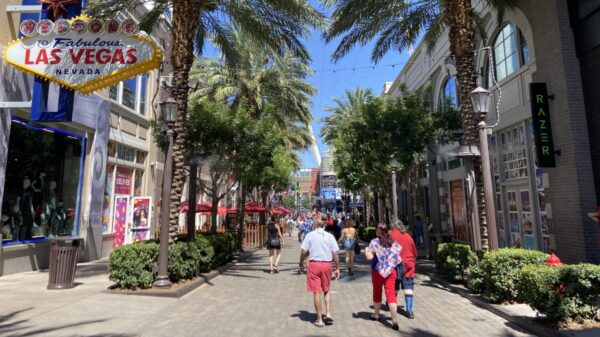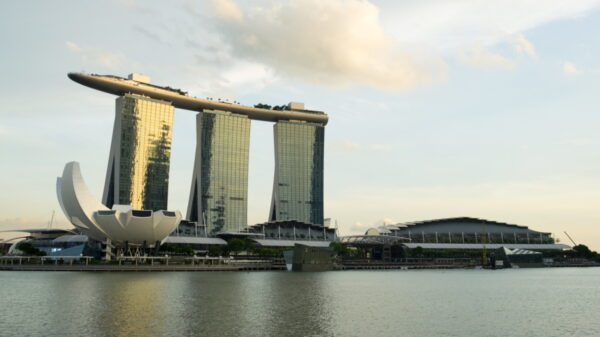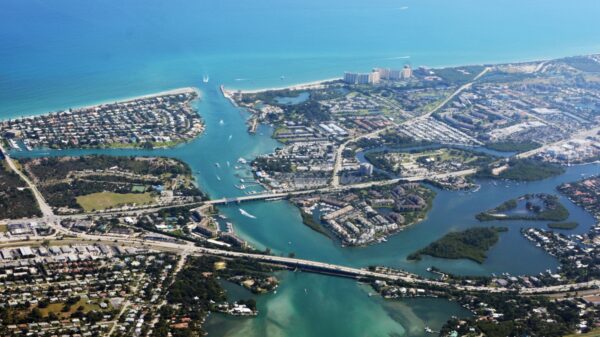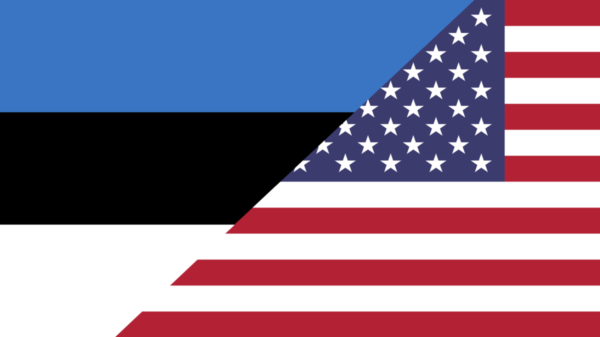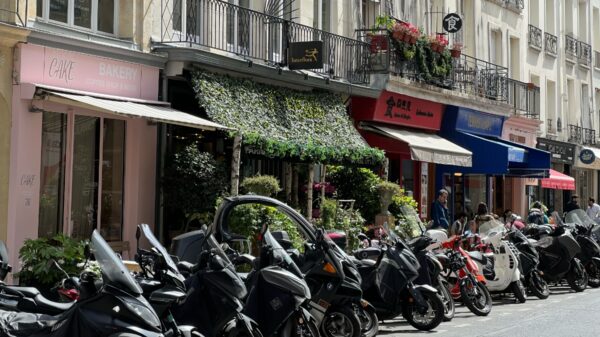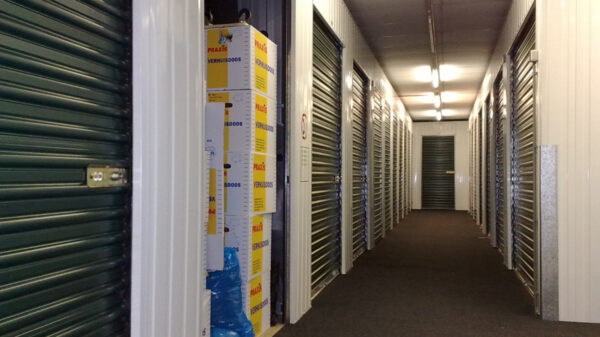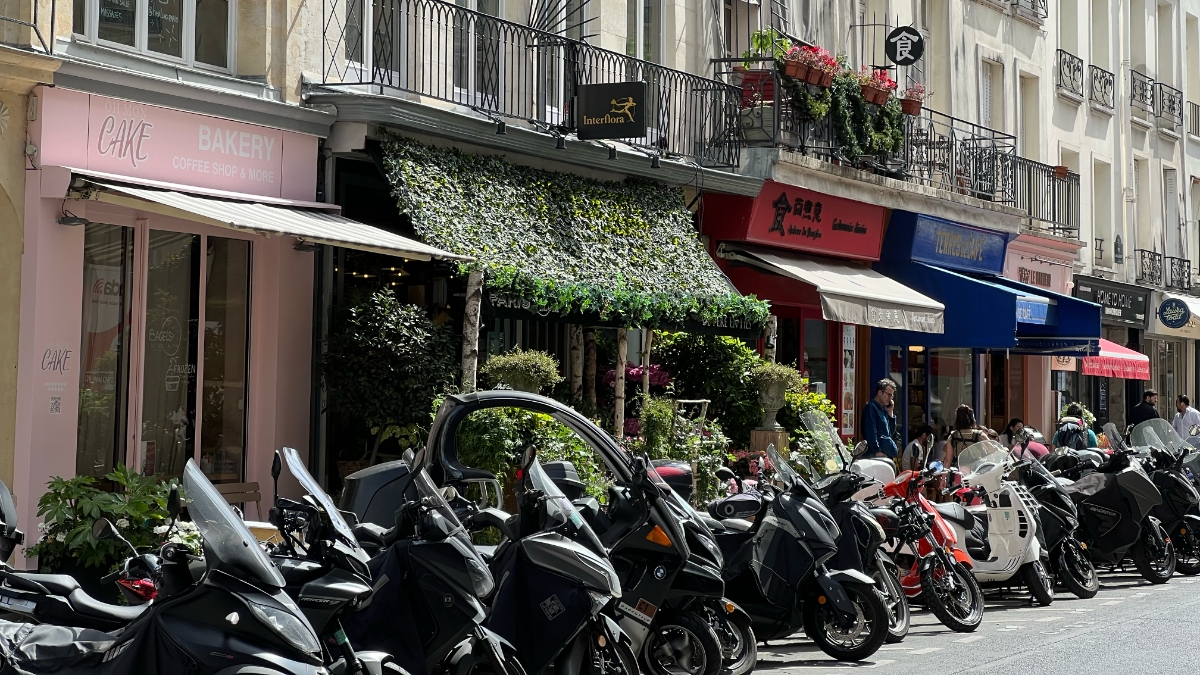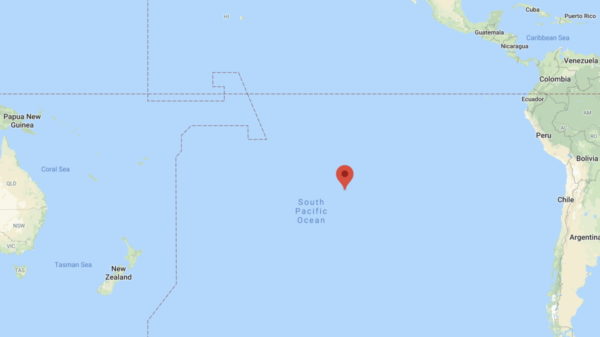European integration has led to the creation of countless business opportunities but has also exposed entrepreneurs, from the EU and abroad, to a very complicated set of VAT rules. This guide covers the most important in 2025 including when to register, when to charge and how to file returns.
When and where to charge
The EU commission has prepared a detailed guide covering most scenarios, I have included it below. I have also included additions relevant to location independent businesses.
Supply of goods
The place of taxation is determined by where the goods are supplied. This not only depends on the nature of the goods supplied, but also on how the supply is made.
The supply of goods is taxed at the place:
- where the goods are located at the time the supply takes place, if they are not dispatched or transported [Article 31 of the VAT directive]
- Example 1: If an Estonian manufacturer hiring a machine in Estonia from a German company decides to purchase the hired machine, the place of supply is Estonia rather than Germany and Estonian VAT must be paid.
- where the goods are located when the dispatch or transport to the customer begins, if they are dispatched or transported by the supplier, by the customer, or by a third person [Article 32 of the VAT directive]
- Example 2: German VAT will have to be charged on goods transported by the supplier himself or by a transporter appointed by him, from Hamburg to a customer in Berlin (place of supply is Hamburg).
- Example 3: When goods supplied are subsequently transported from Bratislava to a customer in Prague by the customer or by a transporter appointed by him, the supply will be subject to Slovakian VAT.
- where the goods are located when the dispatch or transport to the customer ends for distance sales when the supplier’s annual sales are above the threshold applied by the customer’s Member State [Article 33 of the VAT directive]
- Example 4: A French company is selling CDs via the internet to private customers throughout the EU. When CDs are sold to customers in Denmark, Danish VAT must be charged when the Danish threshold is exceeded while Dutch VAT must be charged to customers in the Netherlands when the Dutch threshold is exceeded.
- where the goods are located when the dispatch or transport to the customer begins for distance sales if the supplier’s annual sales are below the threshold applied by the customer’s Member State (except if the supplier has opted to tax in the Member State of destination) [Article 34 of the VAT directive]
- Example 5: If the annual sales by the French company (see above example 4) to customers in Belgium do not exceed the Belgian threshold, the CDs will be taxed in the French.
- Example 6: When the French company supplies to a customer in Luxembourg and the French company has taken the option to tax at destination, the CDs will be taxed in Luxembourg.
- where the goods are being installed or assembled, if done by the supplier [Article 36 of the VAT directive]
- Example 7: Romanian VAT must be paid on the supply of a machine installed in Romania by the Italian supplier for his customer. Should the machine instead be installed by the customer himself, the supply will be taxable in Italy (an exempt intra-Community supply in Italy followed by an intra-Community acquisition in Romania will take place if the customer is a taxable person).
- where the point of departure is, if supplied on board ships, aircraft or trains during the section of a passenger transport operation effected within the Community [Article 37 of the VAT directive]
- Example 8: Goods not to be consumed on-board, bought by a passenger during a crossing in the Ionian sea are taxed in Italy when the ferry leaves Bari with Corfu as destination and in Greece when leaving Corfu to return to Bari.
- Example 9: For goods sold to passengers taking a flight from Malaga to Hamburg, Spanish VAT will be charged. For the return flight, German VAT will apply.
- Example 10: A shop selling goods to passengers taking a cruise from Athens in Greece to Barcelona in Spain, stopping in Italy and France for short visits but allowing no embarkation or disembarkation of passengers; Greek VAT will apply.
- where the taxable dealer is established when receiving electricity or gas supplied through the natural gas distribution system [Article 38 of the VAT directive]
- Example 11: Electricity supplied by a Swedish power plant to a Danish energy company for distribution, is taxed in Denmark.
- Example 12: When natural gas from the North sea is bought by a Dutch distributor, VAT needs to be accounted for in the Netherlands by the distributor.
- where electricity or gas supplied through the natural gas distribution system is effectively used and consumed by the private customer [Article 39 of the VAT directive]
- Example 13: A private consumer living in Warsaw who is supplied gas by a German energy company through the natural gas distribution system will be charged Polish VAT by his supplier.
- Example 14: When electricity is supplied for use by private customers in Budapest, Hungarian VAT must be paid.
- (FS addition) where the customer is located, if the value of the goods is under 150 EUR and the goods are being supplied from a non-EU country. (the regular importation rules apply to goods with a value over 150 EUR)
Intra-Community acquisition of goods
The place of taxation is determined by where the intra-Community acquisition of goods is made (i.e. the Member State where the goods are finally located after transportation from another Member State).
Goods acquired by a taxable person acting as such (a business in its business capacity) or by a non-taxable legal person (for example a public authority) are subject to VAT. For simplification reasons, goods acquired by a taxable person covered by the SME scheme or the flat-rate scheme for farmers or by a non-taxable legal person are not subjected to VAT if annual acquisitions are below an annual turnover threshold set by their Member State (minimum EUR 10 000), though it is still possible to opt for taxation.
The acquisition of goods is taxed in the Member State issuing the VAT number (Member State of identification) under which the acquisition is made. Should the goods be transported to another Member State (Member State of arrival) tax must be paid there. This will be followed by an adjustment of the VAT paid in the Member State of registration. Examples of the two situations are as follows:
- taxation in the Member State of identification [Article 41 of the VAT directive]
- Example 15: French VAT must be paid on goods acquired from another Member State by a company under its French number for use at its factory in Strasbourg.
- Example 16: Where a company acquiring goods from Spain provides its supplier with the VAT number under which it is identified in Slovakia, VAT must be paid on the acquisition in Slovakia.
- taxation in the Member State of arrival of the goods [Article 40 of the VAT directive]
- Example 17: If goods acquired by a company using its Slovakian VAT number are in fact sent from Spain to Germany, VAT must be paid on the acquisition in Germany and any tax due in Slovakia (see above example 16) will be reduced accordingly.
Supply of services
On 1 January 2010, rules were introduced to ensure that VAT on services will better accrue to the country of consumption [see Directive 2008/8/EC adopted by the EU Council of Ministers and the press release IP/08/208.
To ensure more uniform application, certain aspects of these rules have been clarified through implementing measures which have applied directly since 1 July 2011 (see Implementing Regulation No 282/2011 adopted by the Council and the Council press release on page 13). The Commission on 18 December 2012 proposed to amend the Regulation to make the taxation of electronic services more business friendly as of 1 January 2015. See the press release and the proposal.
The place of taxation is determined by where the services are supplied. This depends not only on the nature of the service supplied but also on the status of the customer receiving the service. A distinction must be made between a taxable person acting as such (a business acting in its business capacity) and a non-taxable person (a private individual who is the final consumer).
The concept of a taxable person covers anyone who independently carries out an economic activity, even if that person is not identified for VAT purposes, but it also includes a non-taxable legal person identified for VAT purposes [Article 43 of the VAT directive].
Only once the exact nature of the service and the status of the customer are known can the place where the services are supplied be correctly determined.
The supply of services between businesses (B2B services) is in principle taxed at the customer’s place of establishment, while services supplied to private individuals (B2C services) are taxed at the supplier’s place of establishment.
- B2B services [Article 44 of the VAT directive].
- Example 18: The place of supply of services supplied by a company in Salzburg to a business client in Vienna will be Vienna. As the supplier is established in Austria, he will charge Austrian VAT to his client.
- Example 19: For accountancy services supplied by a Bulgarian company to a business customer with his place of business in Austria, Austrian VAT must be charged. If the Bulgarian supplier is not established in Austria, the Austrian customer will account for VAT under the reverse charge mechanism.
- Example 20: Finnish VAT must be charged (by the customer using the reverse charge procedure) where legal services are supplied by a Polish company to a customer whose place of business is in Sweden but provided to the customer’s fixed establishment in Finland.
- Example 21: Advertising services supplied by an Italian company to a public authority in Spain which, because of its intra-Community acquisitions of goods, is identified for VAT purposes, are taxed in Spain using the reverse charge mechanism.
- (fs addition) VAT must be charged in the customer’s country for services supplied by a non-EU business to a business located in an EU country.
- B2C services [Article 45 of the VAT directive].
- Example 22: For consultancy services provided by a supplier established in Lisbon to a private customer who resides in Denmark, Portuguese VAT must be charged.
- Example 23: A supplier established in Greece will need to charge Greek VAT to a business customer established in Romania who acquires legal services to be used for his private purposes.
- (fs addition) No VAT applies to services supplied by a non-EU business to an individual located in an EU country.
However, in order to ensure that VAT receipts accrue to the Member State of consumption, several exceptions have been introduced:
- B2C services provided by an intermediary are taxed at the location where the main transaction, in which the intermediary intervenes, is taxable [Article 46 of the VAT directive]
- Example 24: The private owner of a summer cottage in France who wants to move some furniture to his home in Sweden may ask an intermediary to find a company that will take care of the removal. No matter where the intermediary is established, French VAT will be due on the commission fee because the place of taxation of the intra-Community transport of goods is the place of departure.
- B2B and B2C services connected with immovable property are taxed where the immovable property is located [Article 47 of the VAT directive].
- Example 25: An architect based in France hired to design a summer house in Spain will charge Spanish VAT to his customer.
- Example 26: A guest staying in a hotel in Nicosia will have to pay Cypriot VAT on the hotel accommodation.
- B2B and B2C passenger transport is taxed according to the distances covered [Article 48 of the VAT directive].
- Example 30: The price of a bus ticket for a trip from Poland to France through Germany will include Polish, German and French VAT, proportionate to the distances travelled in each of these countries. Should the trip pass via Switzerland, there will be no EU VAT on the distances covered in that country since Switzerland is not a member of the EU.
- B2C transport of goods, other than intra-Community transport, is taxed according to the distances covered [Article 49 of the VAT directive]
- Example 31: For goods transported for a private customer from Paris to Marseille, the company carrying out the transport must charge French VAT irrespective of where it is established.
- B2C intra-Community transport of goods (goods departing from one Member State and arriving in another) is taxed at the place of departure [Article 50 of the VAT directive]
- Example 32: For goods transported from Germany to France for a private customer, German VAT must be charged on the transport irrespective of where the company carrying out the transport, or the customer is established.
- B2C ancillary services to the transport of goods, such as the loading and unloading services, are taxed in the Member State where those services are physically carried out [Article 54 of the VAT directive]
- Example 33: A Danish company unloads a truck in Rotterdam for a private individual, the supplier will need to charge Dutch VAT.
- B2B services in respect of admission to cultural, artistic, sporting, scientific, educational, entertainment and similar events will be taxed at the place where those events actually take place [Article 53 of the VAT directive]
- Example 34: When an Irish company for business purposes pays for the entry to an opera in Verona, the ticket will contain Italian VAT. That applies whether the ticket is bought on-line or at the ticket booth.
- Example 35: For a conference organised in Stockholm for participants paying a fee to attend, Swedish VAT is charged.
- Example 36: The work of drawing up a scientific report by the University of Cologne for a pharmaceutical company in Denmark will be subject to Danish VAT and accounted for by the Danish company (because it is not a service in relation to the admission to an event). This service will instead be taxed under the general rule of Article 44.
- B2C services relating to cultural, artistic, sporting, scientific, educational, entertainment and similar activities will be taxed at the place where those activities actually take place [Article 54 of the VAT directive]
- Example 37: A ticket bought by a tourist going to Spain for a football match played in Madrid will contain Spanish VAT.
- Example 38: A student living in Antwerp who follows a management course in a business school in the Hague will be charged Dutch VAT.
- B2B and B2C restaurant and catering services, other than those supplied on board ships, aircraft or trains during the section of a passenger transport effected within the EU, are taxed at the place where the services are physically carried out [Article 55 of the VAT directive]
- Example 39: Guests dining at a restaurant in Paris will be charged French VAT.
- Example 40: A company which caters for an event in Firenze, arranging for food and drinks which it prepares and serves to the guests must charge Italian VAT on the services, no matter where it is established.
- When B2B and B2C restaurant and catering services are supplied on board ships, aircraft or trains during the section of a passenger transport effected within the EU, tax is paid at the place of departure of the transport [Article 57 of the VAT directive].
- Example 41: A meal served in a restaurant on board a ferry sailing from Helsingor (DK) to Helsingborg (SE) (or any EU port) is subject to Danish VAT.
- B2B and B2C short-term hiring of means of transport is taxed at the place where the means of transport is actually put at the disposal of the customer [Article 56 of the VAT directive]. Short term covers the continuous possession or use of a means of transport throughout a period of not more than 30 days or, in the case of vessels, not more than 90 days.
- Example 42: A Belgian, on holiday or on business, in the Baltic countries arrives at Riga airport and picks up a car hired for two weeks, Latvian VAT will be charged on the hire.
- Example 43: For a boat hired in Sardinia for 2 months, the hire will be subject to Italian VAT regardless of who is hiring the boat and where it goes.
- Electronically supplied services, provided by suppliers established in a third country to non-taxable persons (B2C) established in the EU, must be taxed at the place where the customer resides or has a permanent address [Article 58 of the VAT directive]
- Example 44: If a private person residing in Sweden makes use of a Japanese on-line library, Swedish VAT will have to be paid on the amount the Japanese company charges.
- Radio and television broadcasting services and telecommunications services, supplied by suppliers established in a third country to non-taxable customers (B2C) in the EU, are taxable at the place where the private customer effectively uses and enjoys the service [Article 59b of the VAT directive]
- Example 45: A French private customer with a Swiss telecoms operator using his mobile phone in France will be charged French VAT. When using his mobile phone during his holidays in Greece, Greek VAT will be charged for the calls made from Greece.
- Example 46: When a private individual living in Barcelona pays a US company for access to American channels, he will need to pay Spanish VAT on the broadcasting services received.
- B2C services like advertising services, services of consultants and lawyers, financial services, telecommunications services, broadcasting services and electronically supplied services are taxed at the place where the customer is established provided the customer is established in a non-EU country [Article 59 of the VAT directive].
- Example 47: When a Hungarian company sells an anti-virus programme to be downloaded through its website to private individuals residing in Australia, there will be no VAT due in Hungary.
- Example 48: Services rendered by a Belgian lawyer to a US professor will not be subject to VAT in Belgium.
To prevent double taxation, non-taxation or distortion of competition, Member States may decide to shift the place of supply of services, which are either inside or outside the EU to inside or outside their territory, when according to the effective use and enjoyment of the service this differs from the place of supply as determined by the general rules, those for hire of means of transport, or certain B2C services to a customer outside the EU [Article 59a of the VAT directive]
- Example 49: Advertising services provided by a company in Norway to a US business is normally taxed where the customer is established and no EU VAT is due. However, if the media used for the advertising campaign is within a Member State, this Member State may decide that VAT is due on its territory, making use of the effective use and enjoyment rule.
- Example 50: A German company supplies to a Swedish company the service of transporting goods from the US to China. Even though the transport takes place fully outside the EU, this supply is taxable in Sweden, at the place where the customer is established. Sweden may make use of the effective use and enjoyment rule in order to avoid taxing such a transport taking place outside its territory and outside EU.
Each Member State is responsible for the implementation of the effective use and enjoyment rule. The use made of the rule must be verified with the Member State concerned.
Some further exceptions will be introduced, or changes will be made to existing exceptions:
- from 1 January 2013: B2C long-term hiring of means of transport will be taxed at the place where the private customer is established, has his permanent address or usually resides [Change to Article 56 of the VAT directive] except for cases where the supplier of a pleasure boat is established in the same Member State in which he puts the boat at the disposal of the customer.
- Example 51: Austrian VAT must be paid on a rental car hired from anywhere in the EU when a private person residing in Vienna hires it for six months.
- Example 52: When a pleasure boat is hired by a German resident from Sweden for use year round, German VAT must be charged. However, if the boat is actually put at the disposal of the customer in Sweden by a supplier established there, Swedish VAT will be due.
- from 1 January 2015: B2C telecommunications, broadcasting and electronically supplied services will be taxed at the place where the private customer is established, has his permanent address or usually resides [Change to Article 58 of the VAT directive]
- Example 53: When webhosting is supplied to a private customer living in Lisbon, Portuguese VAT must be charged irrespective of whether the supplier is established in Portugal, in another EU Member State or outside the EU.
- Example 54: Greek VAT is due on the use of a mobile phone by a private customer residing in Athens.
- Example 55: Broadcasting services provided to a private customer in Helsinki will contain Finnish VAT.
Importation of goods
When goods are imported from non-EU countries or non-EU territories, the place of importation is determined by where the goods are at the point of entry into the EU.
- The importation is in principle taxed in the Member State where the goods arrive [Article 60 of the VAT directive].
- Example 56: Dutch VAT must be paid on oil from Russia when it arrives in Rotterdam where it is declared to customs.
- If upon entry, goods are put under a suspensive customs procedure or similar arrangements, the importation will be in the Member State where the goods leave that procedure or arrangement [Article 61 of the VAT directive].
- Example 57: For consumer goods which, upon entry into the EU in Poland, are placed under the transit procedure until their final destination in the Netherlands where the goods leave the customs arrangements, Dutch VAT will be due.
How to file returns
EU businesses typically have to register for VAT in their country of registration while non-EU businesses can choose where they register (it is recommended to register in the country where most goods enter the EU).
EU businesses registered for VAT can then register for access to the EU VAT OSS (one stop shop) – Union scheme via their VAT account. The EU VAT OSS allows for the reporting of EU-wide sales under one return, and the payment of all EU VAT due. When to file varies by country but in most case is monthly (some countries allow for quarterly and even annual filings).
Non-EU businesses can register for the EU VAT OSS – Non-union scheme in their country of choice. It is recommended to use a service to facilitate the registration and ongoing compliance so as to avoid costly mistakes. Popular options include Avalara, Hellotax, Simply VAT etc.
Businesses supplying goods to customers located in the EU only occasionally (low volumes) can use the VAT / import services offered by most courier services as an alternative to registration (it does not make sense to regular / medium to high volume sellers due to costs).

